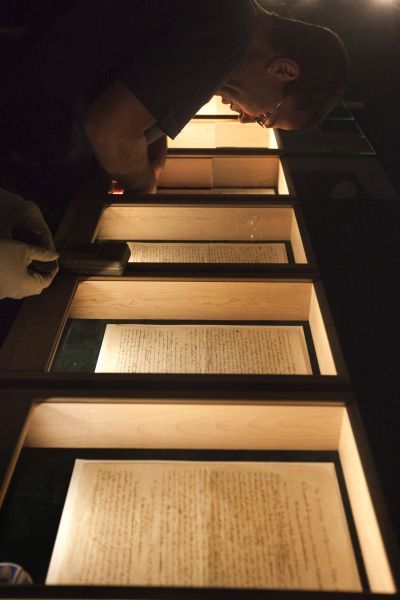Einstein's theory of relativity on display for first time

Your support helps us to tell the story
From reproductive rights to climate change to Big Tech, The Independent is on the ground when the story is developing. Whether it's investigating the financials of Elon Musk's pro-Trump PAC or producing our latest documentary, 'The A Word', which shines a light on the American women fighting for reproductive rights, we know how important it is to parse out the facts from the messaging.
At such a critical moment in US history, we need reporters on the ground. Your donation allows us to keep sending journalists to speak to both sides of the story.
The Independent is trusted by Americans across the entire political spectrum. And unlike many other quality news outlets, we choose not to lock Americans out of our reporting and analysis with paywalls. We believe quality journalism should be available to everyone, paid for by those who can afford it.
Your support makes all the difference.The complete original manuscript of Albert Einstein's "General Theory of Relativity" went on display for the first time Sunday in an exhibition by the Israeli Academy of Sciences and Humanities.
The 46-page work, which revolutionised scientists' understanding of the universe and underpinned a century of major discoveries, was penned by Einstein in Berlin in 1916 and donated to Jerusalem's Hebrew University during its inauguration in 1925.
"One can almost look over Einstein's shoulder while he was at work, his elegant handwriting, the corrections and equations, the erasures and additions," the exhibit's curator Hanoch Gutfreund said ahead of the opening.
"The comments that are added to numerous pages shed light on Einstein's basic ideas, the challenges he faced and the difficulties he encountered."
The theory advanced an entirely new model of space, time and gravity that paved the way for the development of space-age technologies, including Global Positioning Systems (GPS).
Einstein, who won the Nobel Prize for physics in 1921, had helped to establish the university during the early days of the British-ruled Palestine Mandate. He later declined an offer to become Israel's president in 1952.
The exhibition will run until March 25.
Join our commenting forum
Join thought-provoking conversations, follow other Independent readers and see their replies
Comments